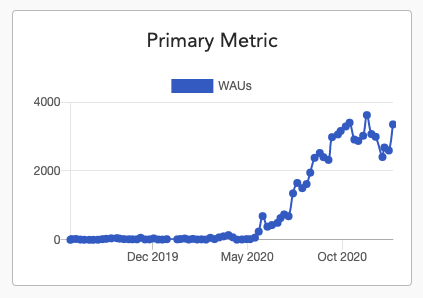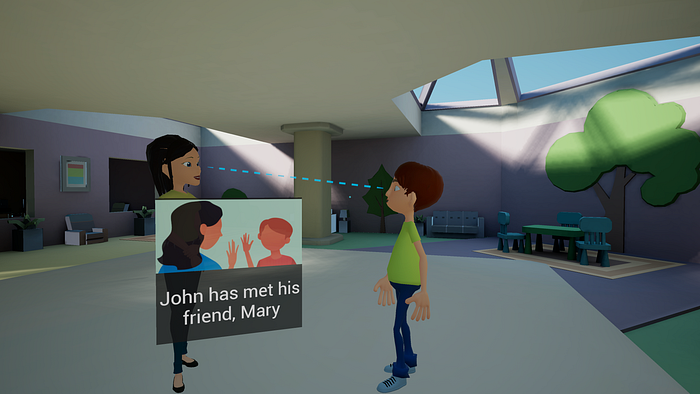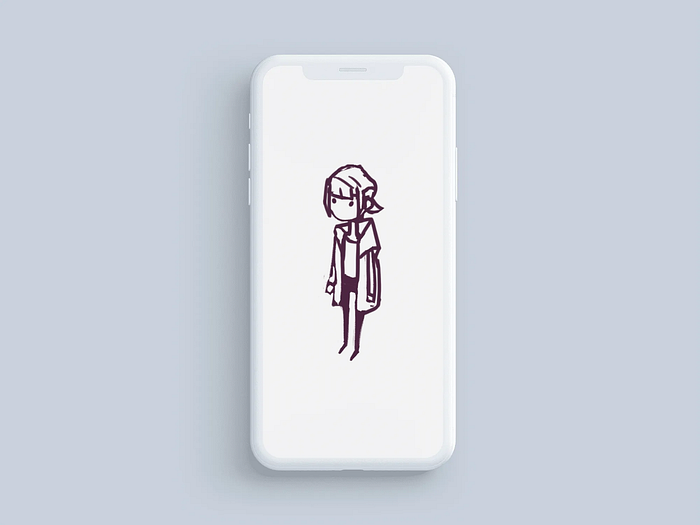Two years of making free games for learners on the autism spectrum
At Luden.io, we develop educational video games because we love to play video games and to learn new things. And happily, a lot of educators and curious players are sharing our passion. Since our first released games, we talk to teachers, parents, and therapists on a regular basis. Learning more and more about their needs we understood that we want to find a field where educational video games can serve as a vital daily tool, not as yet another extra material.

Several educators approached us at different times, suggesting that we should develop a game for players with learning differences. This is when we’ve teamed up with a clinical psychologist friend of ours and started drafting what later became Rewire.Education — an interactive course for children with Autism Spectrum Disorder and related disabilities.

This project took us onto a 2-years journey and resulted in a bunch of researches, a dragon, thousands of lessons, a couple of VR games, a browser adventure, an app for certified specialists, and finally a simulation game about emotions and communication that we’re working on right now (and you are invited to play the early friends-and-family version of the game — sign up here).
Baby Steps
At the beginning none of us knew much about autism. We did know, however, that autistic learners have troubles generalizing social skills and maintaining attention during classes, so VR was a good option to start with. It was also kinda personal: our previous educational VR games received lots of positive feedback, but they were one-time tools, and we wanted to create an educational game that could be applied on a regular basis.

Our therapist friend had little experience of working with autistic people, but she did help us connect to a private school York, which specialized in working with learners with ASD. Shortly before approaching them, we assembled a prototype of a sorting exercise in VR using Unreal Engine 4 made by Epic Games and Oculus Go headset, which was pretty much as far as our understanding of education for autistic people went at the moment.

It quickly turned out, however, that there was nothing about sorting exercises in real life, that could be improved with virtual reality. On the other hand, educators were struggling with generalization of skills in the context of social situations, such as going to a mall or visiting a dentist. They suggested that we should start by developing an exercise for establishing and maintaining eye contact. But by the time we finished working on this exercise, the school had stopped answering our emails, so we didn’t have a chance to test it in action. Perhaps they didn’t see any use for what we were doing in their work, but we’ve decided to not give up and move on.

VR: We Need to Go Deeper
A new exciting page of Rewire’s history began when we brought this prototype to “Our Sunny World”, one of the biggest educational institutions for people with autism and related disorders in Russia. Since we were in the same city, it was possible for us to iterate together on a regular basis, and the specialists from “Our Sunny World” quickly proved very interested in experimenting with the new media, and full of ideas.
We were attending about 5–10 classes per week, assisting the therapists while they were helping their learners interact with an Oculus Go headset. Through the summer of 2019, we have developed together several new exercises for our VR simulation, directly based on the tools that therapists were using in their work. Our hypothesis was that virtual reality would cut off all possible distractions, while simultaneously making it easier for a learner to go through trials and errors, due to the “playful” and “unreal” nature of the process. In other words, we supposed that the children would be less discouraged by their mistakes if they happened in VR.

These experiments brought us to many interesting results and little breakthroughs (you can read about it in detail here). One particularly interesting case occurred later in winter 2020 when we conducted a 2-months long experiment in trying to learn new skills using VR simulation. The results were promising, but we still decided to put the VR part of the project aside in the end.

Our collaboration with “Our Sunny World” resulted in dozens of hours of experimenting, prototyping, iterating, and exchanging ideas, but the result didn’t look like something that educators would apply in their everyday work. Through the fall of 2019 we have been showing Rewire.Education to many teachers and therapists in the US, and our work did not exactly turn to be a silver bullet for them. VR headsets were not too easy to handle for an average teacher, nor they were affordable and ubiquitous. VR part of Rewire required a very enthusiastic and progressive educator to persuade their superiors to adapt to their school. Needless to say, such educators are a very rare breed. Besides, when it came to social situations, there already existed an amazing project called Floreo, which offers out of the box VR solutions for iPads and iPhones. We sincerely recommend it to anyone interested in applying VR to autism education.

But the thing we were really after was an understanding of where we could apply our expertise in video games to help the educators improve the lives of people with ASD. The answer to this riddle was looming in front of us, but we were unable to grasp it just yet. At the same time, we were experimenting with VR, another educator from “Our Sunny World” came up with an idea of a cooperative game that would help explain the importance of cooperation with other people.
This is how we created Rewire Teamwork Adventure, a little browser story about two heroes, joining their effort on a quest to defeat an evil dragon. While working on this game, we were also very much inspired by the work of our friends and Game to Grow, who are adapting D&D tabletop RPG system for therapy and teaching communication.

We have playtested Teamwork Adventure with some autistic children under 10 years old and saw very interesting happenings in the process. All that brought us to the general idea, that the direction in which we should be heading is communication. But before we headed this way, we had stumbled upon a very peculiar side quest.
ABA Cards — There and Back Again
By December 2019, we have spent many hours talking to educators who work with autistic students. We have mostly been focusing on specialists working in the field of Applied Behavior Analysis (ABA), as this approach was scientifically proven to be effective and its methods were structured enough for our IT brains to comprehend.

While talking to many ABA professionals, we have noticed that virtually all of them were struggling with flashcards. These cards were piled up in the cabinets, they would occupy the whole trunk of one therapist’s car, and therapists would spend hours each week, searching for, printing, laminating, sorting, and resorting those cards. After researching, we have found that there were some digital flashcards apps and services on the market, but nothing specifically tailored for the needs of ABA therapists, so we decided to fix that. This is how we’ve created an app with a rather straightforward name: ABA Cards.
Our biggest fear was to develop yet another gimmick app, so we have been trying to talk to as many ABA therapists as we could reach and ask them to test the prototype. Needless to say, that teachers are an incredibly busy bunch, so most of them didn’t have time for a call, but we’ve managed to reach several dozens of respondents. Once again, the ABA department in “Our Sunny World” helped us with their feedback, along with many other local ABA centers and therapists.

This way, ABA Cards effectively included exercises that therapists have specifically asked us to design for their work. For our first prototype, we have developed a selection of lessons based on the popular VB-Mapp ABA protocol. After another round of interviews, we have added an option to create custom cards and make lessons out of them, along with an advanced data collection tool, based on the therapists’ checklists. We’ve also topped it with remote lessons feature, as by this time it was March 2020, and the infamous COVID-19 lockdown was upon us, and many educators were struggling, not being able to meet their learners face to face, as they usually do. Due to the same circumstances, we’ve made the app free for the period of pandemic.

After releasing the app in Google Play and AppStore we have presented it, along with Rewire’s whole story, at ABAI annual conference and went on collecting the feedback, and upgrading the app. Again, our learnings were peculiar, but not too impressive. Less than 10% of users would refer to remote lessons, and overall retention was about 5% by the 30th day. The feedback that we were gathering through Google Forms questionnaire, suggested that we should add more content to the app. We did exactly that, allowing educators to share their decks of cards with colleagues and adding several more popular ABA techniques to the app.
Unfortunately, that didn’t influence retention too much, although by fall 2020 we’ve achieved a number of 3500 lessons per week in ABA Cards. The funny moment here is that ABA Cards is growing by itself and 1–2 times a month absolutely unexpectedly for us 100+ therapists singing up in a couple of hours because of someone from their Facebook community start using the app.

Perhaps, partly it was due to the overall rhythm of the medium: educators, especially those working with special children, are often too busy and pressed down by paperwork to be actively exploring and adapting new apps and technologies. Perhaps, and very much likely, we are just too much of outsiders in that world still. After all, we do not specialize in ABA, nor are we skilled in developing apps. Our passion is making games, and by summer of 2020 we started to feel that we have strayed too far away from our natural habitat environment.
Back to the Roots

This is a story with a happy ending. Our efforts were noticed by Epic Games and this very summer we have received a MegaGrant, that will allow us to keep the work we’ve done for Rewire free for everyone. But before we even learnt about that, we had already cooperated with our fellow game therapist and started prototyping a game. The idea was to put into the game a summary of everything we have seen and learnt through this amazing journey.
Making games is our main passion, but as we know educators are looking for exact solutions to their problems which are rare could be presented as a game. At the same time, educational games are potentially much better for learners. Therefore, we doubted a lot about this decision. That’s why receiving a MegaGrant from legendary Epic Games precisely at that moment was like a sign for us that we moving in the right direction. So what the game is about? It’s about emotions and communication!

As we were talking to autistic children, their caregivers and educators, the most frequent phrase that we heard was “all autistic children are very different”, which is very true. However, we are coming to believe that if there might be a direction to take. If there is a topic that is hard to comprehend by typical and autistic people alike (and way more so for the latter than the former) — it is communication. Understanding the hidden curriculum of person to person interaction is an increasingly important skill today, as social-emotional education becomes more ubiquitous at schools. It’s a tricky one to explain, too, but here’s where video games can be just perfect, with their unique ability to visualize things and encourage experimenting.

The working title is R8 and it’s a kind of simulation sandbox visualizing what is going on in the head of others when we communicate. Players can try many different ways of behavior: they could try to bully their way through their opponents or try and become their best friend, and everything in between. But any behavior strategy has its own consequences, sometimes rather surprising. Our dream is to illustrate the wild storm of emotion that might be ongoing in an interlocutor’s head during a pressing conversation. Somewhat like in Pixar’s “Inside Out”, it allows players to take a glimpse inside someone else’s head.



At this moment we’ve implemented the feedback from players of the early version, which has changed the game dramatically. We’re also consulting our fellow game-based therapist to ensure our game indeed has a practical angle. To support the gameplay, we also plan to add a built-in encyclopedia of emotions — our main reference to it being the museum from Animal Crossing. Bottom line is, we’re full of ideas for creating a sandbox for experimenting with emotions and communication.

We’re planning to show a public version of R8 in the first half of 2021. Now the game is only available for our friends-and-family club. It helps us to collect early feedback and make the game better. So if you want to be part of our journey please sign up here, and will make it together :)

We sincerely hope that our experience would help future developers of games and apps for people with ASD, because there definitely is more to do to make their lives better. Please don’t hesitate to contact us if you have any questions or thoughts to share!

Links
- ABA VR https://gamejolt.com/games/abavr/483635
- Teamwork Adventure https://gamejolt.com/games/ta/481537
- ABA Cards https://rewire.education/abacards
- Teacher guides https://drive.google.com/drive/folders/1r-Yrr9TkY-uBeAuYXjItOtkS2U_oSk0K
- Website https://rewire.education/
- Newsletter https://ludenio.substack.com/about

